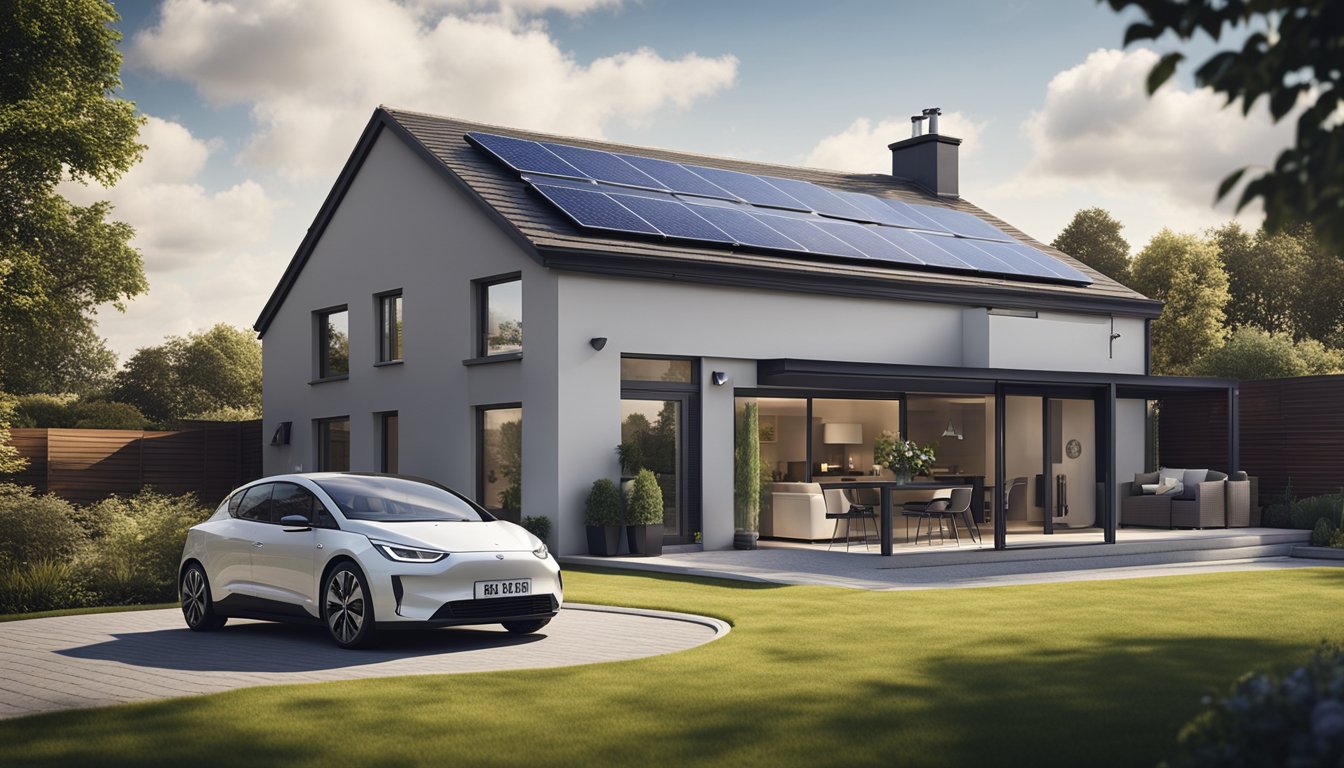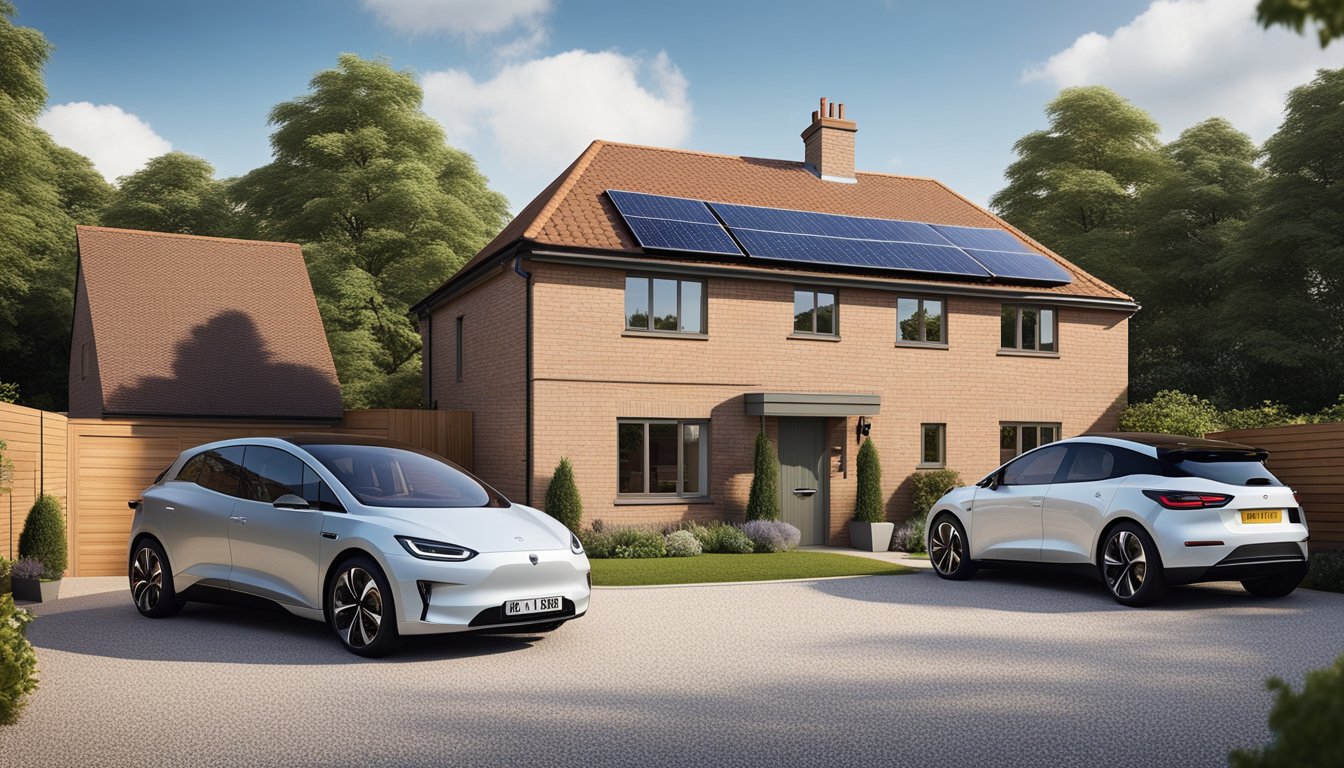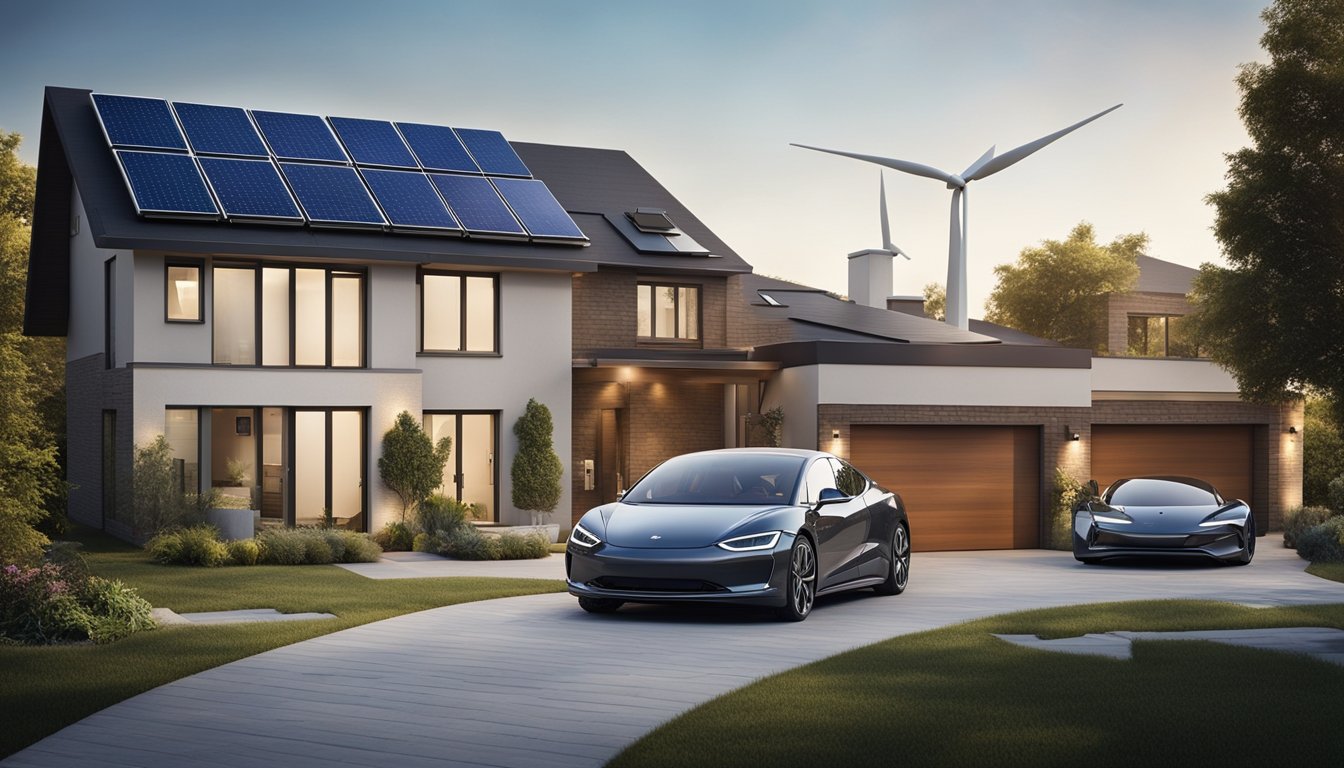Late updated: 01 Oct 2024 15:10
Written by: Oliver Bennett
Innovative Renewable Energy Solutions For UK Homes: Harnessing Future Technologies
In today's rapidly changing world, the shift towards renewable energy in our homes is not just an option, but a necessity. With a range of innovative solutions emerging, the UK is at the forefront of transforming home energy use. Harnessing solar power through innovative floating farms or integrating smart storage solutions, we are redefining the boundaries of sustainable living.

We have witnessed a surge in technology-driven solutions aimed at reducing carbon footprints and achieving net zero in housing. From advanced heat pumps to smart grid applications, the landscape of energy utilisation in our homes is evolving. These innovations not only pave the way for a cleaner environment but also promise significant cost savings for homeowners.
The journey towards a sustainable future is both challenging and exciting. As we explore strategies for incorporating these technologies into everyday life, it's crucial to stay informed and empowered. By embracing clean energy and cutting-edge technology, we can take meaningful steps towards a greener tomorrow for our communities.
Key Takeaways
- Innovative solutions enhance renewable energy in UK homes
- Emerging technologies help achieve net zero goals
- Sustainable energy leads to environmental and cost benefits
Emerging Technologies in Renewable Energy

As we explore the landscape of renewable energy, several innovative technologies significantly enhance energy efficiency and sustainability. These technologies provide valuable solutions for reducing carbon footprints and meeting energy needs in a more eco-friendly manner.
Advancements in Solar Panel Technology
One major innovation in solar panel technology is solar power windows. These are designed to serve dual purposes: functioning as windows while generating electricity. With transparent solar panels developed by companies like Ubiquitous Technology, buildings can meet a significant portion of their energy needs, potentially up to 30%. Furthermore, advancements in floating solar panels, which are mounted on platforms on bodies of water, help maximise space usage and increase energy production without consuming land resources.
Innovative Energy Storage Systems
Effective energy storage systems are crucial for harnessing renewable energy's full potential. Modern battery technologies, such as lithium-ion and emerging solid-state batteries, offer enhanced storage capacity and efficiency. This ensures a reliable energy supply even when natural energy sources like the sun or wind are unavailable. Additionally, grid-scale storage solutions like pumped hydroelectric storage provide scalable options to balance supply and demand, crucial for maintaining stability in energy distribution networks.
Heat Pump Solutions for Existing Homes
Heat pumps provide an efficient alternative for home heating, particularly in existing residential spaces. Air-source and ground-source heat pumps extract heat from the environment and use it to heat homes, offering a more efficient form of energy use compared to traditional heating systems. These systems can significantly reduce carbon emissions by minimising reliance on fossil fuels. Hybrid systems combine heat pumps with gas boilers, optimising performance and ensuring reliable heating even in colder climates.
Offshore Wind Energy Developments
The advancement of offshore wind energy represents a significant leap towards sustainable energy production. Offshore wind farms leverage powerful sea winds to generate substantial electricity quantities. The UK is a frontrunner in this area, exploring larger and more efficient turbines that can operate in deeper waters. These developments not only increase energy output but also diminish the impact on land-based ecosystems. Continued innovation in turbine technology and farm design is critical for capturing more energy in a cost-effective manner.
Strategies for Achieving Net Zero in UK Housing
Our commitment to achieving net zero in UK housing by 2050 requires a focused approach on improving both energy efficiency in existing and new buildings, alongside ensuring these solutions remain affordable and accessible to all residents.
Net Zero by 2050 Goals for Social Housing
We need to realise the UK’s net zero emissions target by 2050, especially within social housing sectors. Housing associations play a pivotal role in this. Their efforts include decarbonising both existing and new developments through effective retrofitting and upgrading heating systems.
Social housing must integrate low-carbon technologies and clean heat solutions. This could involve replacing traditional gas boilers with heat pumps or electric heating systems.
The implementation of these sustainable energy solutions enhances efficiency and reduces carbon emissions, aligning with national decarbonisation goals. It is essential that these initiatives receive the necessary government support and policy backing to succeed.
Efficiency Improvements in Existing Housing
Improving the energy efficiency of existing homes is crucial for reducing greenhouse gas emissions and achieving net zero. Upgrades might include better insulation and advanced window glazing, which can significantly decrease energy consumption. Smart meters and energy-efficient appliances are also feasible options.
The UK government has set priorities for existing buildings to adhere to higher energy performance standards. Organisations and homeowners are encouraged to make incremental updates to their properties, ensuring a sustainable transition.
This strategy mandates collaboration between local authorities and residents, promoting awareness and providing clearer guidance on adopting these improvements.
Affordability and Accessibility of Renewable Solutions
We face the challenge of ensuring that renewable solutions are both affordable and accessible across all housing sectors. The cost of installing technologies like solar panels or efficient heating systems can be prohibitive without adequate funding and support.
Financial incentives, such as grants or low-interest loans, are vital for encouraging homeowners and housing associations to invest in these technologies.
By making these solutions more financially accessible, we can foster a wider adoption and ensure that all residents can benefit from sustainable energy, ultimately reducing carbon emissions at the community level. Competitiveness within the market can also help drive down costs and enhance innovation in renewable technologies.
Frequently Asked Questions

Our focus on renewable energy solutions for UK homes brings forward options like solar panels, domestic wind turbines, and heat pumps. We also explore government initiatives and emerging trends that support these choices.
What are the most cost-effective renewable energy options for UK households?
Solar panels and heat pumps emerge as key contenders for cost-effectiveness in the UK market. With declining solar panel costs and advancements in heat pump technology, these solutions provide practical options for homeowners looking to transition to renewable energy.
How do solar panels perform as a renewable energy source in UK weather conditions?
Solar panels can efficiently generate electricity despite the UK’s cloudy weather. Modern photovoltaic panels can produce energy even in low light conditions, making them a viable option across various regions in the UK. The technology has evolved to maximise energy capture throughout the year.
What are the benefits and drawbacks of installing a domestic wind turbine in the UK?
Domestic wind turbines can produce renewable energy effectively in areas with adequate wind speeds. Benefits include reduced electricity costs and carbon footprint. Drawbacks may include planning permission challenges, installation costs, and limited suitability in less windy locations.
What government initiatives are available to support UK homes in transitioning to renewable energy?
There are several initiatives, such as grants and subsidies, available to assist with the costs of transitioning. The UK's Green Homes Grant and Smart Export Guarantee are examples of schemes designed to support homeowners in adopting renewable energy technologies.
Can renewable heat pumps be effectively integrated into existing UK home heating systems?
Yes, heat pumps can be integrated into existing heating systems, especially when homes are well-insulated. They offer an efficient way to produce heat using less electricity. While initial installation may involve costs, their efficiency can lead to reduced energy bills over time.
What are the emerging trends in renewable energy solutions for residential properties in the UK?
Trends include the increasing use of smart home technologies that enhance energy efficiency and the integration of battery storage systems with renewable installations. These advancements allow homeowners to store and use renewable energy more effectively, optimising consumption patterns and contributing to grid stability.
